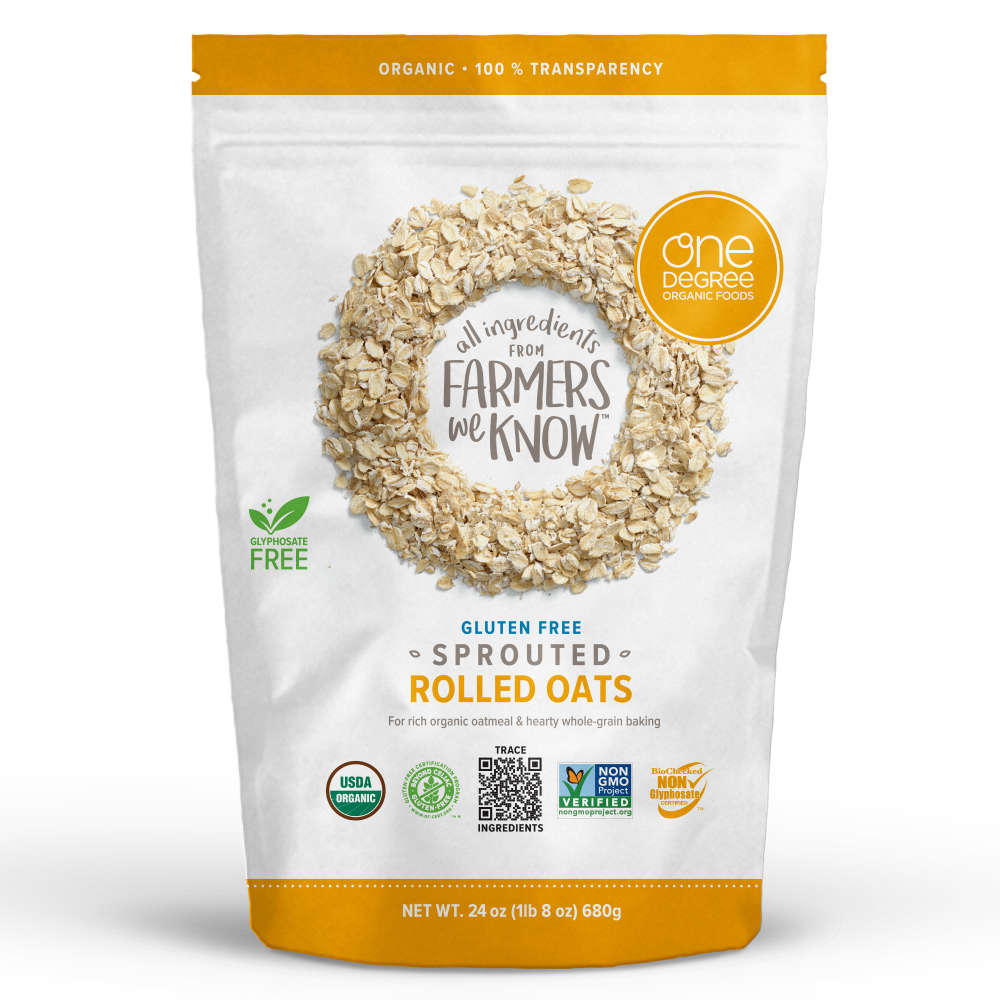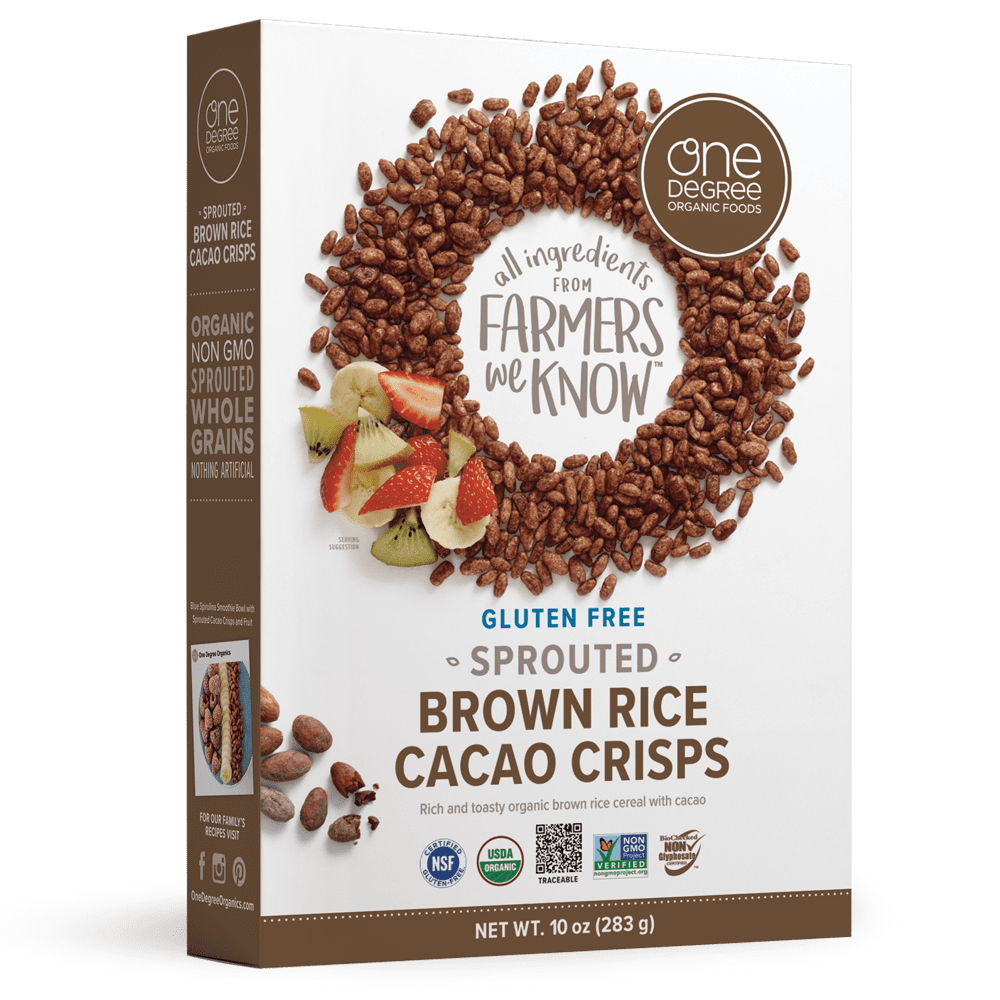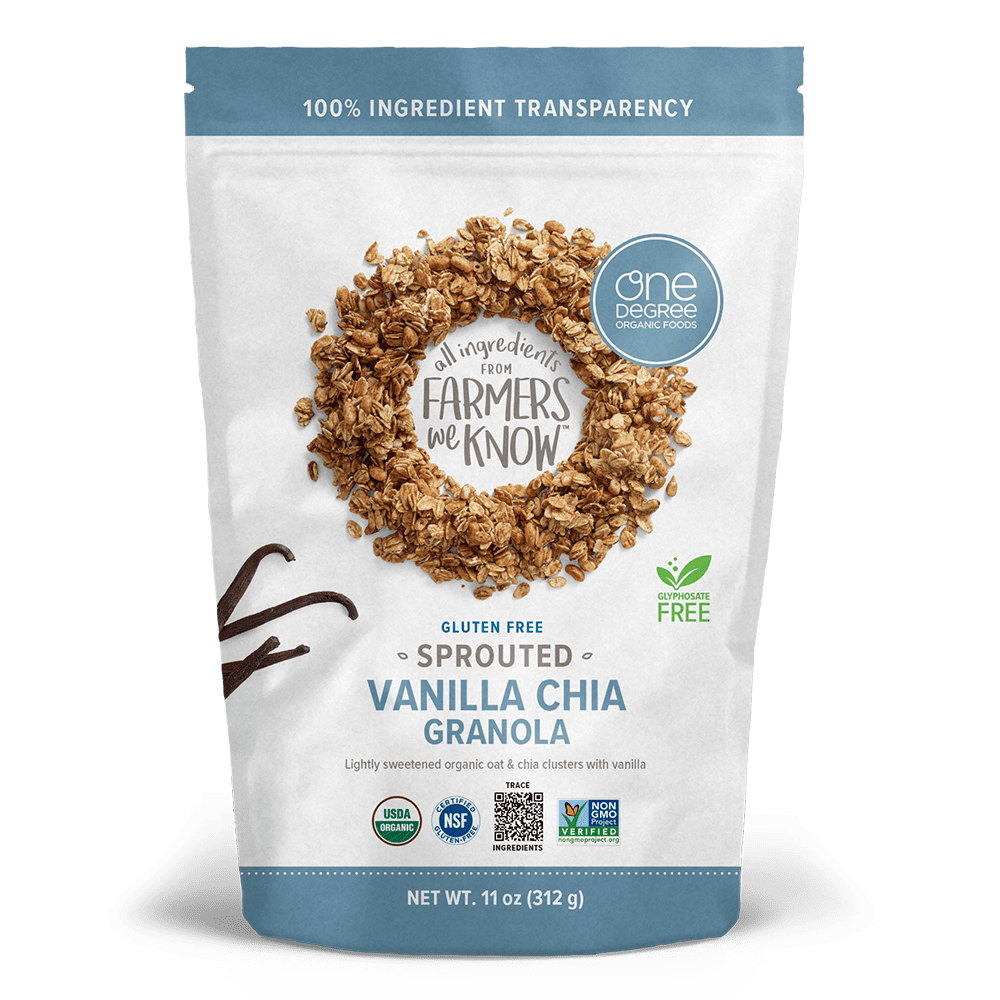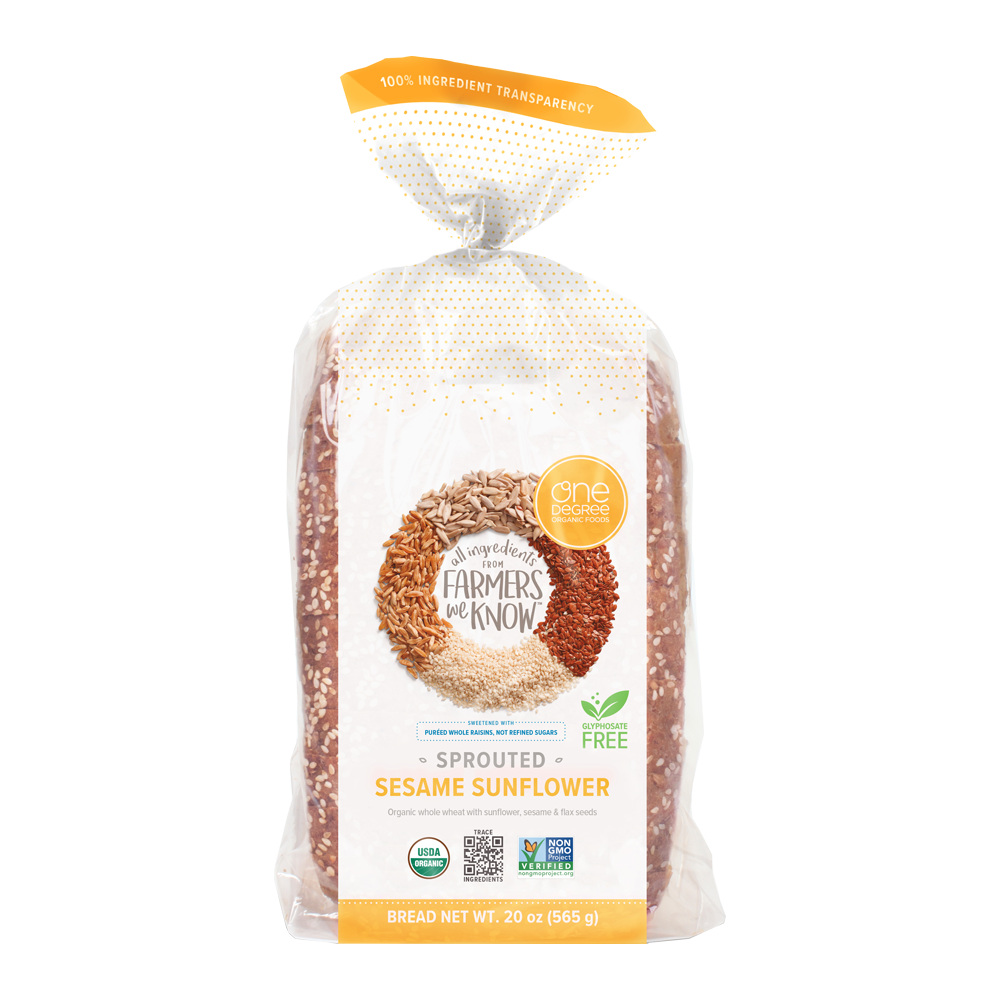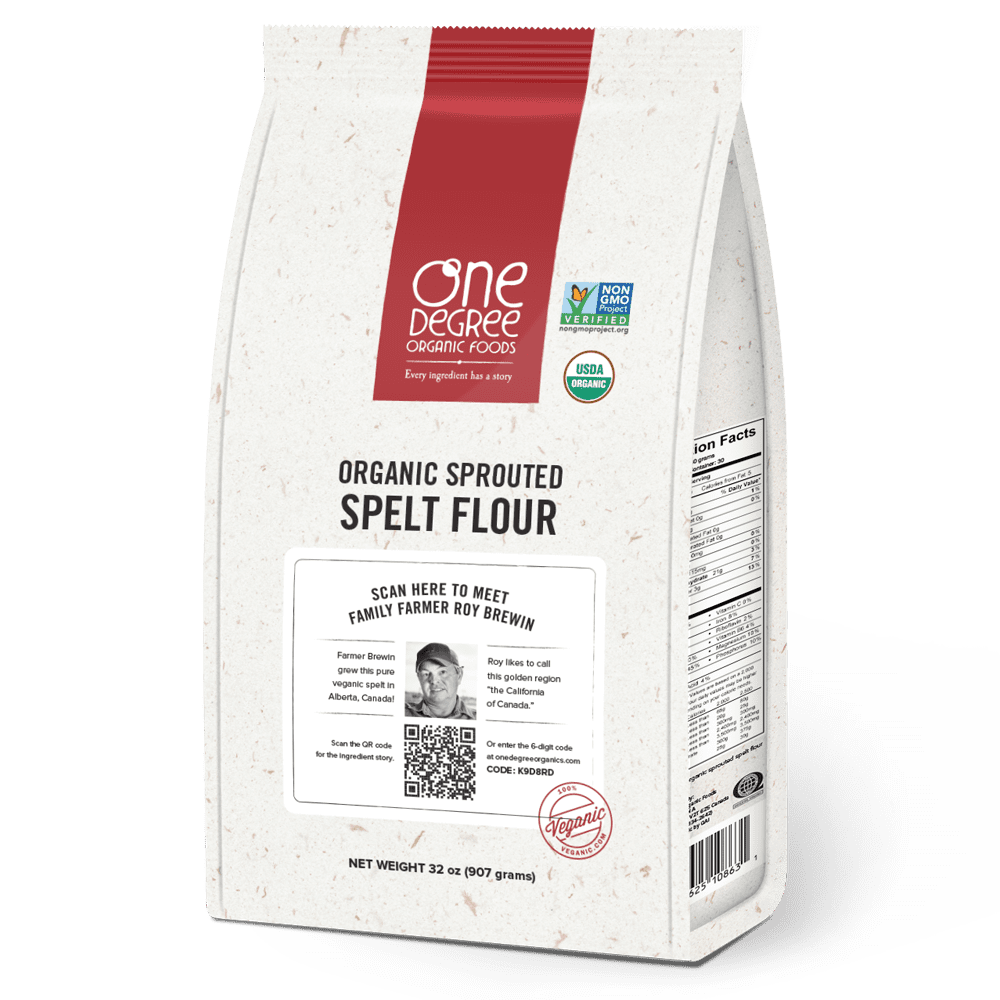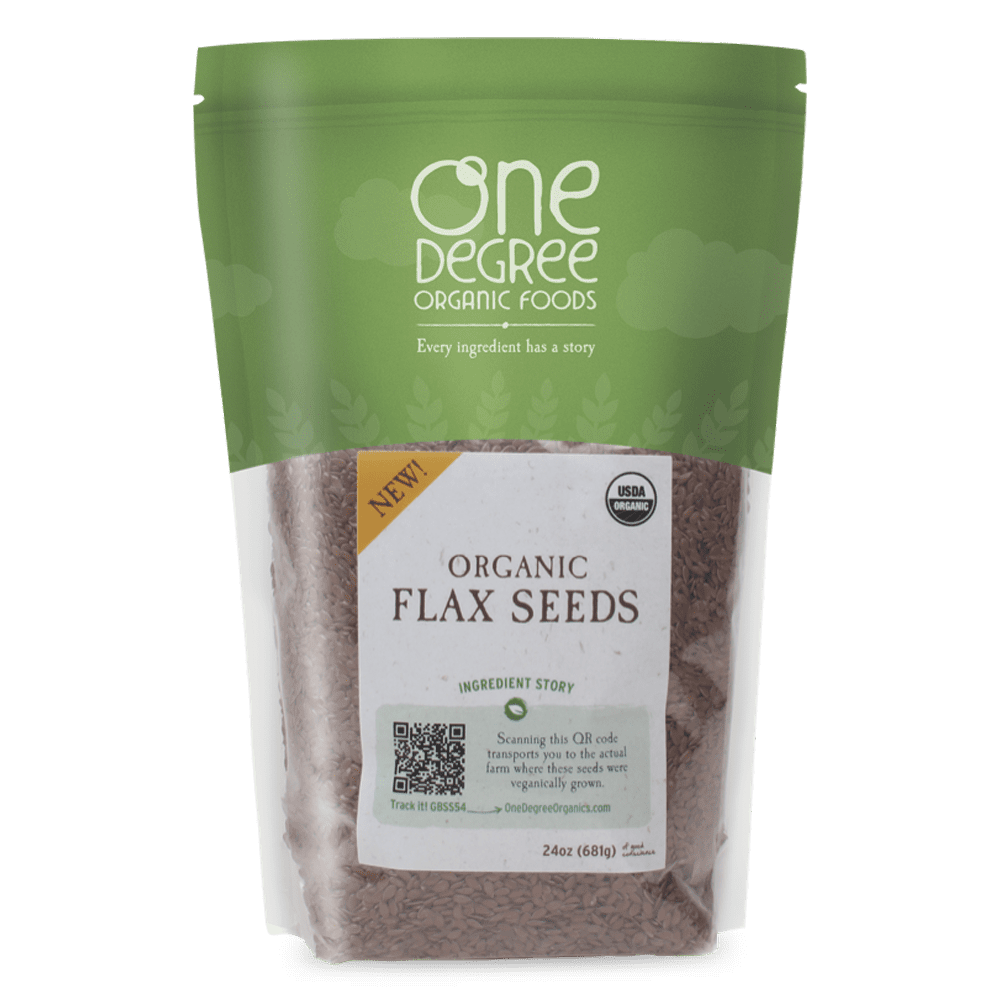Vale Farms
Vale Farms in the heart of British Columbia’s Lumby Valley is an agricultural treasure. It’s the iconic farm we all carry in our imagination, the one we’d want to spend our childhoods roaming if we had the chance to begin again; a place to learn about nature, our world and ourselves.
One Degree was lucky to find a source for high-quality veganic spelt there, but it was just as satisfying to discover a multigenerational family farm with a strong devotion to sustainability. At the center of it all is Don Hlaydich, the kind of farmer we want associated with our brand, a farmer our customers can trust.
Don was born in this community, and has been living and breathing farming for most of his 40 years. Don’s values include respect for nature, a devotion to chemical-free farming — and hard work.
“A lot of people think that organic production is just harvest whatever comes,” Don says. “It’s not that at all, it’s still very much active farming and trying to feed and build your soil.
“Going organic, you do it as a life choice, those are your values, more so than you’re looking for other markets. If you try to come at it from a business aspect, I think that you sort of approach it from the wrong thought process… You really need to have a value system and a belief behind it.”
Though he spends his days gazing at soil, seeds and grain, he never loses sight of the broader picture. He sees small family farms as the natural way to preserve variety in the food supply and lessen society’s reliance of industrial farming.
“The diversity of food that’s available to us at a grocery store is so limited. I think there’s 250 different kinds of vegetable varieties that are available on the typical grocery store shelves, and you go to the farmer’s market and there’s often between 3,000 and 5,000.”
This increasing lack of diversity doesn’t only represent a narrowing of choices for the consumer, but also a reduced likelihood that people are getting the full range of nutrients that the body needs, and nature intended.
Like many One Degree farmers, Don has by necessity become not just an expert in diet and nutrition, but also a virtual scientist when it comes to promoting the richness of his soil. It was his knowledge of the soil and natural processes that prompted him to begin planting spelt.
“What we liked about the spelt is that it’s a fall planted crop,” he says. “We tend to be quite dry here in the summer time, so it’s quite important that we try and maintain our soil moisture in the spring.” Spelt serves that function. “It grows well in our climate; it was a grain crop that was a really nice fit for our environment here.”
Don continually updates his knowledge by taking courses in soil biology. Beyond that, he spends time “observing and watching the plants a lot,” he says. “If you’re going to be trying to work with nature, you have to understand the processes that are happening in your soil.”
Rich soil in a chemical-free environment yields stronger crops in many ways. For example, Don reports that he has had no problems with insects in his fields. “If your plant is stressed, there’s always going to be some sort of parasite. If the plant is healthy and not stressed and the soil is giving the plant what it needs, it has the ability to fight off those parasites.”
The irony is that on farms that use insecticides extensively, the chemicals eventually weaken the plants and make them more susceptible to parasites. That, in turn, increases the need for stronger doses of insecticide.
Don’s respect for nature extends beyond his grain fields. On his property he has set aside a large area as a wildlife refuge, and actively aids Coho salmon restocking efforts. On any given day, one may see white tail deer, eagles, hawks, herons, and perhaps even a black bear in the refuge.
Don and his wife Emily also run a small school for young children on the property, where kids learn about nature and farming. Emily’s parents started the farm in 1975 after emigrating from Germany, where they had studied agriculture at the university level.
Emily teaches several grades of the Waldorf-inspired school, which currently has about 20 students enrolled, including Don and Emily’s three daughters. Grades range from preschool and kindergarten through grade five.
“The idea initially was to bring the younger generation back in touch with farming and food,” Don explains. The students benefit from a direct connection with nature: “They are out in the spelt field when we work on the field, they are out there looking at it and learning about the processes of the soil. And they always go out and hand-harvest a couple of bushels of the grain, and then they hand thrash it and then grind it up and make it into flour, and then use that to make bread.
“They love coming to the farm. They grow their own little garden. We have kids that are 4 and 5 years old that understand flour, that it’s not just something that comes from a bag. We have kids who want to knit something, so rather than going to the store they come and grab a bag of raw wool from here and wash it and spin it.”
Family and creating a better future for young people is a powerful motivator to grow the healthiest, safest and highest quality food on the farm: “When you produce food like this, it’s amazing to eat it. That’s the ultimate end to what you were doing. And to be able to eat it and have so much flavor and feel so good that what you’re putting on your family’s table is the healthiest that you could possibly do, there’s a lot of pride in that.”
Looking out upon the beautiful rows of grain, Don asked, “How could you not be passionate about this?” It was the kind of question that didn’t bother to pause for an answer; because, in an instant, it had already answered everything.
— Charlie Dodge
